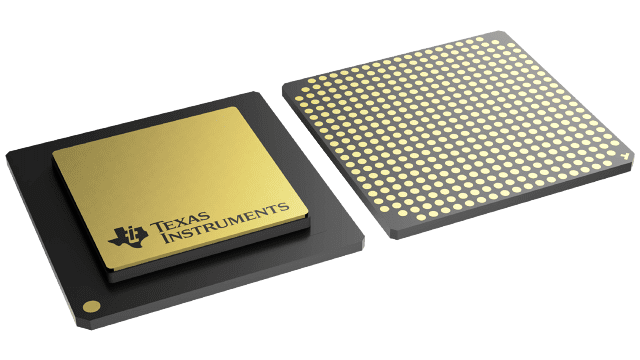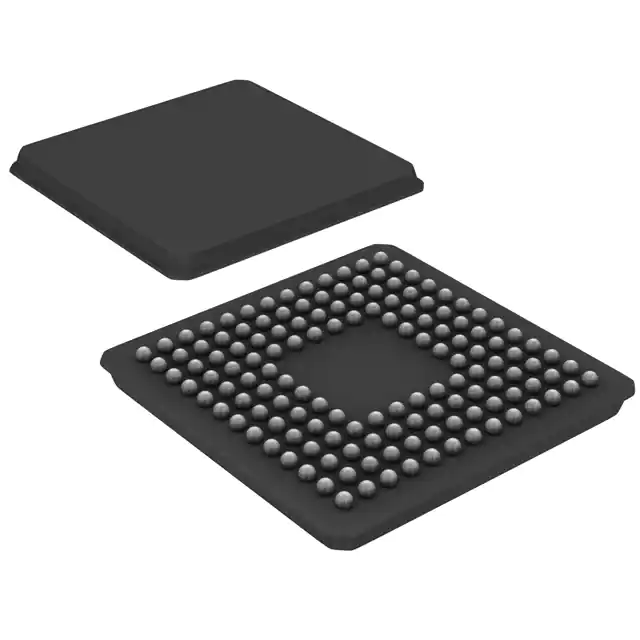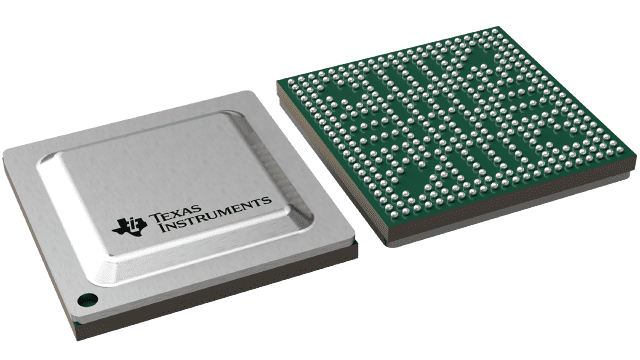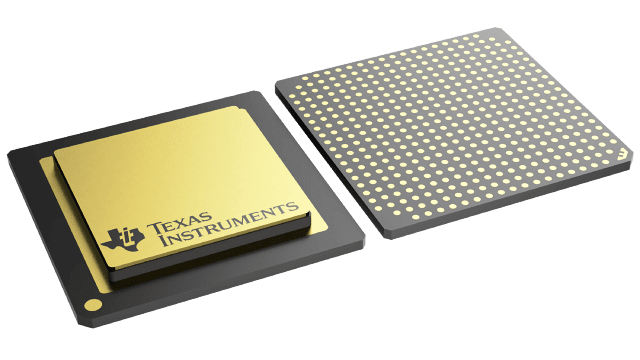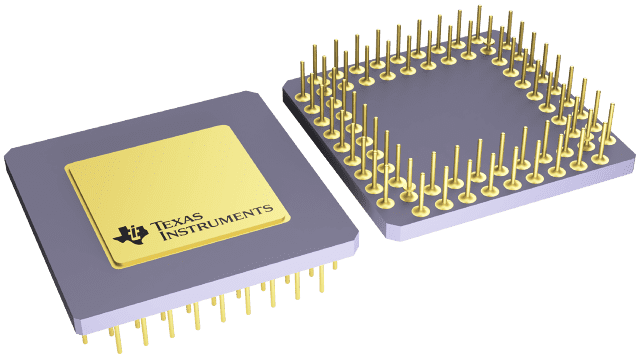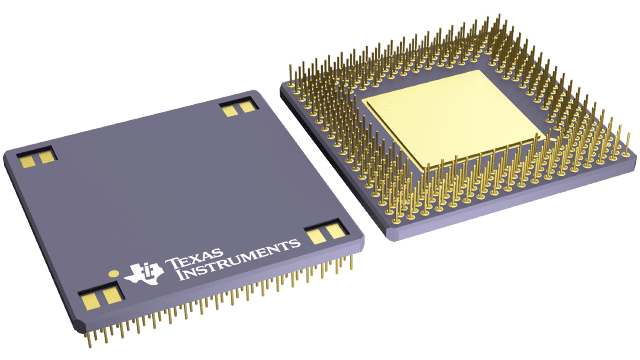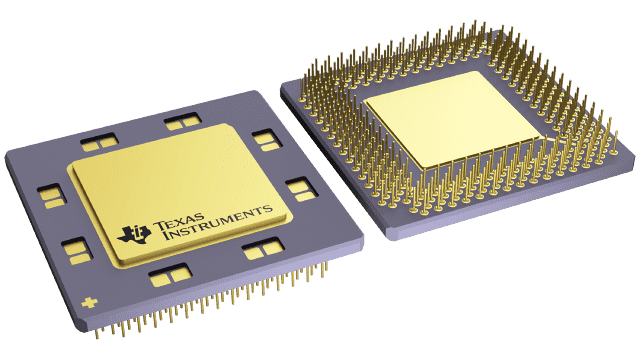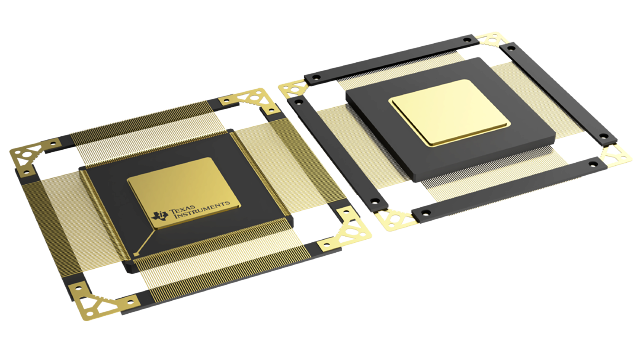Images are for reference only , Please refer to the product datasheet
5962-9866102VYC
Space grade C6701 floating-point DSP - rad-tolerant class V with ceramic package
Manufacturer:
Manufacturer NO:
5962-9866102VYC
copy
Product SN:
10442-5962-9866102VYC
copy
Package/Case:
FCLGA (ZMB)-429
copy
Manufacturer Lead Time:
-
copy
Datasheet:
Detailed Descripition:
-
copy
Product Application Field:None
Product Application Field:None
Documents & Media
Datasheets PDF 5962-9866102VYC Datasheet PDF
Product Description
- Rad-Tolerant: 100-kRad (Si) TID
- SEL Immune at 89MeV-cm2/mg LET Ions
- QML-V Qualified, SMD 5962-98661
- Highest-Performance Floating-Point Digital
Signal Processor (DSP) SMJ320C6701- 7-ns Instruction Cycle Time
- 140-MHz Clock Rate
- Eight 32-Bit Instructions/Cycle
- Up to One GFLOPS Performance
- Pin Compatible With ’C6201 Fixed-Point DSP
- SMJ: QML Processing to MIL-PRF-38535
- SM: Standard Processing
- Operating Temperature Ranges
- –55°C to 115°C
- –55°C to 125°C
- VelociTI Advanced Very Long Instruction
Word (VLIW) ’C67x CPU Core- Eight Highly Independent Functional Units:
- Four ALUs (Floating and Fixed Point)
- Two ALUs (Fixed Point)
- Two Multipliers (Floating and Fixed Point)
- Load-Store Architecture With 32
32-Bit General-Purpose Registers - Instruction Packing Reduces Code Size
- All Instructions Conditional
- Eight Highly Independent Functional Units:
- Instruction Set Features
- Hardware Support for IEEE Single-Precision
Instructions - Hardware Support for IEEE Double-Precision
Instructions - Byte Addressable (8-/16-/32-Bit Data)
- 32-Bit Address Range
- 8-Bit Overflow Protection
- Saturation
- Bit-Field Extract, Set, Clear
- Bit Counting
- Normalization
- Hardware Support for IEEE Single-Precision
- 1M-Bit On-Chip SRAM
- 512K-Bit Internal Program/Cache
(16K 32-Bit Instructions) - 512K-Bit Dual-Access Internal Data
(64K Bytes)
- 512K-Bit Internal Program/Cache
- 32-Bit External Memory Interface (EMIF)
- Glueless Interface to Synchronous Memories:
SDRAM and SBSRAM - Glueless Interface to Asynchronous Memories:
SRAM and EPROM
- Glueless Interface to Synchronous Memories:
- Four-Channel Bootloading
Direct Memory Access (DMA) Controller
With Auxiliary Channel - 16-Bit Host-Port Interface (HPI)
- Access to Entire Memory Map
- Two Multichannel Buffered Serial Ports (McBSPs)
- Direct Interface to T1/E1, MVIP, SCSA Framers
- ST Bus Switching Compatible
- Up to 256 Channels Each
- AC97 Compatible
- Serial Peripheral Interface (SPI)
Compatible (Motorola)
- Two 32-Bit General-Purpose Timers
- Flexible Phase-Locked Loop (PLL) Clock Generator
- IEEE Std 1149.1 (JTAG(1))
Boundary Scan Compatible - 429-Pin Ceramic Ball Grid Array (CBGA/GLP) and
Ceramic Land Grid Array (CLGA/ZMB) Package Types - 0.18-µm/5-Level Metal Process
- CMOS Technology
- 3.3-V I/Os, 1.9 V Internal
- Engineering Evaluation (/EM) Samples are Available(2)
0 In Stock
Finding Goods Through Sales
Want the lower wholesale price? Please send RFQ, we will respond immediately
Product price
Qty
Unit Price
Ext Price
100
$4430.244
$443024.4
For more 5962-9866102VYC prices, contact customer service to get a discount!
You May Also Like
0 In Stock
Finding Goods Through Sales
Want the lower wholesale price? Please send RFQ, we will respond immediately
Product price
Qty
Unit Price
Ext Price
100
$4430.244
$443024.4
For more 5962-9866102VYC prices, contact customer service to get a discount!
Home
Chat
Compare
Add To RFQ
